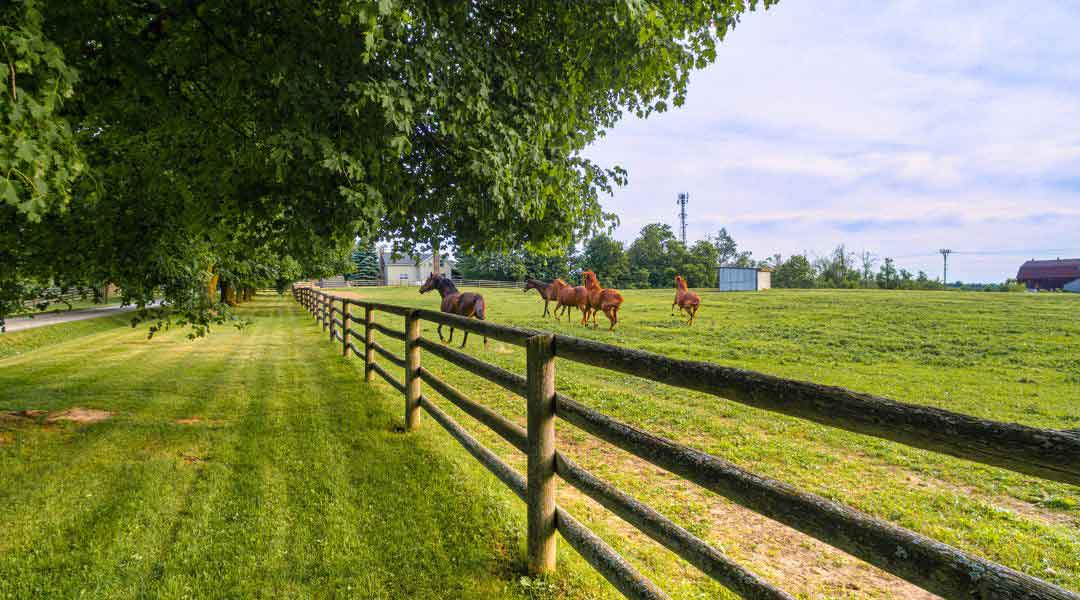Are you considering purchasing a ranch for your business? It is important to understand the basics of how much acreage is necessary for success to ensure long-term profitability. The amount of land needed depends on many factors including terrain, soil quality, land usage, and labor input.
To determine the amount of acreage necessary for a successful ranch, it is important to create a plan that takes into account all the potential uses and inputs of land. For example, if you plan on raising cattle as part of your business, you will need more acreage than if you were just growing crops. Similarly, the terrain and soil quality can influence the amount of land needed for the ranch.
What Are the Different Land Uses on a Ranch?
When considering acreage for a successful ranch, it’s important to consider the various uses of land. These may include pasture for grazing animals, cropland for growing hay and other crops, woodlands for lumber production or recreational purposes, wetlands for waterfowl, and range land for wildlife. Different types of land will require different inputs, such as fencing, water sources, buildings, and labor.
For example, if you plan to raise cattle on your ranch, you will need pastures for grazing and barns or other shelters for the animals. For crop production, you may need additional fencing, irrigation systems, and other equipment. Additionally, if you plan to use your ranch for recreational purposes such as hunting or fishing, you will need to set aside specific acreage for those activities.
Factors to Consider When Choosing Your Acreage
There are a few things to consider when determining the amount of acreage necessary for a successful ranch.
Potential Usage and Inputs
To determine the amount of acreage needed for your ranch, you should consider all the potential uses and inputs. This includes pasture for grazing animals, cropland for hay and other crops, woodlands for lumber production or recreational purposes, wetlands for waterfowl, and range land for wildlife.
Land Requirements for Animals
When raising animals, there are also specific land requirements. For cows and calves, a general rule of thumb is to have 1.5 to 2 acres of land per cow. This means that if you plan on having 100 cows, you will need at least 150 to 200 acres.
Starting Small
One of the most important considerations when calculating acreage for a ranch is to start small. Many people recommend starting with just 50 cows instead of 100 if you are able to, as this can help you avoid getting in over your head. Additionally, if you start small and add more acreage as needed, you can give yourself the flexibility to change or expand your business if necessary.
Financial Considerations
There are certain financial implications to consider when calculating acreage for a successful ranch. The initial cost of purchasing the land can be significant, and you may need to factor in additional costs for fencing, irrigation systems, and other equipment.
Additionally, you should consider potential income from the ranch and make sure it is enough to cover your expenses. If you are able to generate income from hay, cattle, or other sources, this can help offset the cost of purchasing additional acreage.
Overall, acreage will vary depending on the size of your ranch and the potential uses and inputs. Make sure to factor in financial considerations and potential land uses when calculating acreage for a successful ranch.
Financing Options for Acreage
Owning and operating a ranch requires a significant investment of time and money, and obtaining the necessary acreage can be costly. To help offset the cost, United Farm Mortgage offers competitive rates for both refinances and purchases of farmland. With flexible terms tailored to fit your situation, United Farm Mortgages can help you get the land your ranch needs.
Farm and Ranch Loans
There are many loan options available for ranchers and farmers, including special financing options. United Farm Mortgage also offers programs specifically designed to meet the needs of those starting a ranch or buying additional acreage for their existing ranch.
Whether you need to purchase land, refinance an existing loan, or make improvements to your ranch, United Farm Mortgage can help you get the financing you need. With a commitment to customer service and knowledge of the agricultural industry, we are the premier source for farm and ranch loans.
By utilizing the services of United Farm Mortgage, you can get the acreage necessary for a successful ranch and have the financing you need to make it happen.
Additional Tips
In addition to obtaining the necessary acreage, there are several other tips for running a successful ranch.
Sustainable Practices
Sustainable practices are essential to ensuring the success of your ranch. This includes selecting breeds that are suitable for local conditions, rotating pastures to protect the soil, and adopting responsible animal husbandry practices.
Support Network
Having a solid support network is also important for successful ranching. By building relationships with other ranchers and local experts, you can benefit from their experience and knowledge.
Livestock Care
Livestock management and care are one of the most important aspects of ranching. Make sure to prioritize your livestock’s health and well-being, as it is vital to a successful ranch. Consulting a livestock nutritionist or veterinarian can help you make sure your animals are healthy and comfortable.
Mindful Planning
When planning for a successful ranch, mindful planning is essential. Ensure that you are realistic about the amount of acreage you need and your capacity to manage it. Additionally, make sure to save money as much as possible in case of unexpected events like a fire, drought, or illness amongst your livestock.
By following these tips and obtaining the necessary acreage, you can ensure that your ranch is successful for years to come. Utilizing the services of United Farm Mortgage can help you get the financing you need to make it happen. With our competitive rates and customized services, we are the perfect partner for ranchers and farmers seeking a loan.

